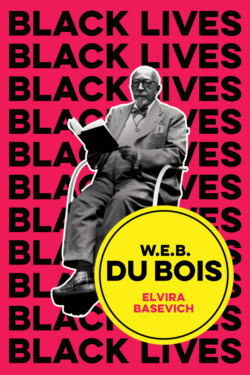Читать книгу W.E.B. Du Bois - Elvira Basevich - Страница 9
Notes
Оглавление1 1. James Baldwin and Margaret Mead, A Rap on Race, Philadelphia and New York: J. B. Lippincott Company, 1971, p. 3.
2 2. For an incisive critique of Coates, see Melvin L. Rogers, “Between Pain and Despair: What Ta-Nehisi Coates Is Missing,” Dissent, July 31, 1995, online.
3 3. Ta-Nehisi Coates, Between the World and Me, New York: Random House, 2015, p. 69.
4 4. Susan Neiman notes that a major difference in the twentieth-century political history of Europe and North America is that Europe was willing to confront its atrocities and genocide – at least with respect to the Holocaust – and thus attempted to atone for the past, whereas the United States has never really tried. See her Learning from the Germans: Race and the Memory of Evil, New York: Farrar, Straus, and Giroux, 2019.
5 5. In contrast, the “Afropessimist” intellectual movement posits that anti-black racism is almost an unstoppable, permanent, and quasi-natural force in US history. See Frank B. Wilderson III, Afropessimism, New York: Liveright, 2020.
6 6. Africana philosophy is an umbrella term that categorizes philosophical inquiry centrally focused on the experiences of African and Afro-descendant peoples. For an overview of the subfield, see Lucius T. Outlaw, “Africana Philosophy,” in Edward N. Zalta (ed.), The Stanford Encyclopedia of Philosophy (Summer 2017 edn), https://plato.stanford.edu/archives/sum2017/entries/africana/
7 7. See Aldon Morris, The Scholar Denied: W. E. B. Du Bois and the Birth of Modern Sociology, Oakland: University of California Press, 2017.
8 8. Charles W. Mills, “W. E. B. Du Bois: Black Radical Liberal,” in Nick Bromell (ed.), A Political Companion to W. E. B. Du Bois, Lexington: University of Kentucky Press, 2018, pp. 19–56.
9 9. W. E. B. Du Bois, The Souls of Black Folk, New York: Penguin, 1989, pp. 3–4.
10 10. W. E. B. Du Bois, “The Development of a People,” in N. D. Chandler (ed.), The Problem of the Color Line at the Turn of the Twentieth Century: The Essential Early Essays, New York: Fordham University Press, 2015, p. 244.
11 11. Christopher Lebron, The Making of Black Lives Matter: A Brief History of an Idea, New York: Oxford University Press, 2017, p. xx.
12 12. W. E. B. Du Bois, In Battle for Peace: The Story of my 83rd Birthday, New York: Oxford University Press, 2007, p. 82.
13 13. Chike Jeffers, “Appiah’s Cosmopolitanism,” The Southern Journal of Philosophy 51(4) (2013): 488–510; Chike Jeffers, “The Cultural Theory of Race: Yet Another Look at Du Bois’s ‘The Conservation of Races,’” Ethics 123(3) (2013): 403–26; Ines Valdez, Transnational Cosmopolitanism: Kant, Du Bois, and Justice as a Political Craft, New York: Cambridge University Press, 2019.
14 14. Juliet Hooker, Theorizing Race in the Americas: Douglass, Sarmiento, Du Bois, and Vasconcelos, New York: Oxford University Press, 2017, pp. 113–54.
15 15. In my view, it is not plausible to hold that Du Bois became an anarchist who rejected the legitimacy of the modern state or an anti-democratic who favored strong-man leaders like Stalin and Chairman Mao. He did, however, write several opinion pieces in support of the latter.
16 16. Mills, “Du Bois: Black Radical Liberal,” pp. 49–50.
17 17. Du Bois, Souls, pp. 3–4.
18 18. Du Bois, Souls, p. 142.
